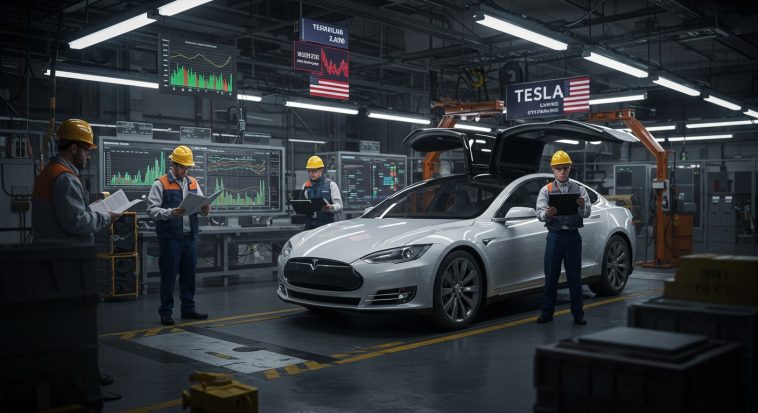Tesla Tariff Impact Weighs on Stock Performance
Tesla (TSLA) stock declined as much as 6% on Monday, leading a downward trend among Big Tech stocks as investors expressed concern over President Trump’s tariff policies and CEO Elon Musk’s government role potentially alienating customers. The Tesla tariff impact is becoming increasingly evident as the company faces multiple challenges in the current economic climate.
President Trump is preparing to implement 25% tariffs on foreign automobiles and certain auto parts this week. Although Tesla is expected to face less severe consequences than other automakers, Musk himself has acknowledged that the impact of these duties on the company remains “still significant” and that Tesla is “NOT unscathed” from the tariff policies.
Analyst Perspectives on Tesla Tariff Impact
Even longtime Tesla supporter Dan Ives, who has generally maintained a positive outlook on the company until recently, commented on Monday: “The winner in our view from this tariff is no one….as even Tesla still is clearly hit from these tariffs and will be forced to raise prices.”
The recent stock decline has contributed to Tesla’s overall drop of more than 38% in 2025, highlighting the growing Tesla tariff impact on investor confidence.
Upcoming Delivery Reports and Tesla Tariff Impact on Sales
Tesla is scheduled to release its electric vehicle sales figures for the March quarter on Wednesday. According to Bloomberg data, analysts expect the Elon Musk-led company to report deliveries of approximately 390,342 vehicles on average.
However, some analysts anticipate lower numbers. Stifel analyst Stephen Gengaro projects Tesla will report deliveries of 353,418 electric vehicles, while RBC Capital analyst Tom Narayan expects deliveries of around 364,000.
Political Factors Affecting Tesla’s Performance
Gengaro pointed to declining sentiment toward Elon Musk among Democratic consumers due to his involvement in government. Evidence suggests that Musk’s close relationship with Trump, along with his support for right-wing politicians in Europe, has damaged Tesla’s brand image, resulting in decreased sales in key markets. This political dimension adds another layer to the Tesla tariff impact on the company’s overall performance.
Product Transition and External Challenges
Gengaro also noted that customers may be delaying purchases while waiting for the introduction of a highly anticipated new affordable Tesla model and the updated Model Y, which is temporarily affecting sales.
“The ramp of the new Model Y, the best-selling car in the world in 2024, is clearly a short-term sales headwind,” Gengaro wrote. “In addition, protests against Elon Musk (damage to Tesla sites, vandalism of customer-owned cars, damage to Superchargers) is a headwind to sales.”
Despite these concerns about the Tesla tariff impact, Gengaro maintained his Buy rating on the stock while lowering his price target to $455 from $474.
International Challenges and Competition
Meanwhile, RBC Capital’s Narayan attributed Tesla’s challenges to weak sales in China, where competition from Chinese EV manufacturer BYD is intensifying, as well as reduced demand in Europe resulting from EU tariffs on Chinese exports. These international factors compound the domestic Tesla tariff impact facing the company.



